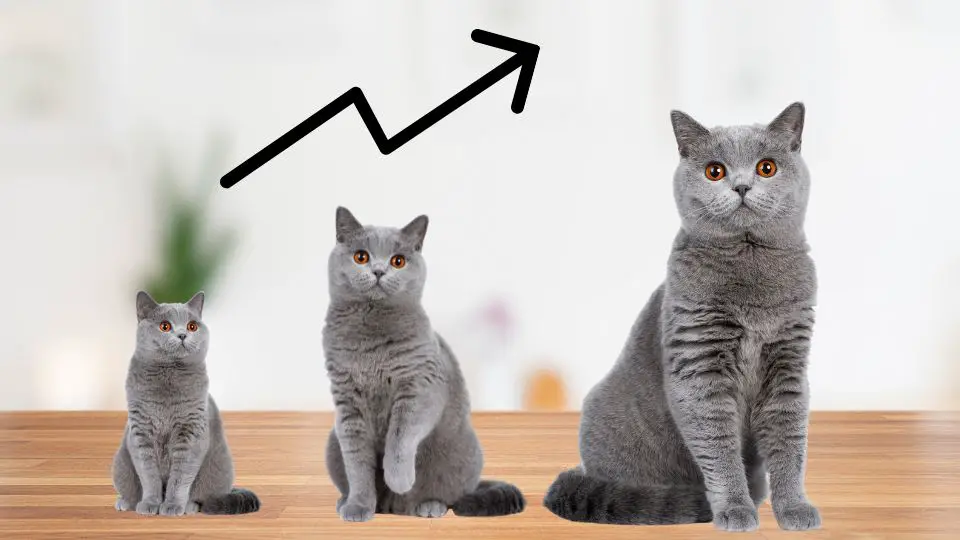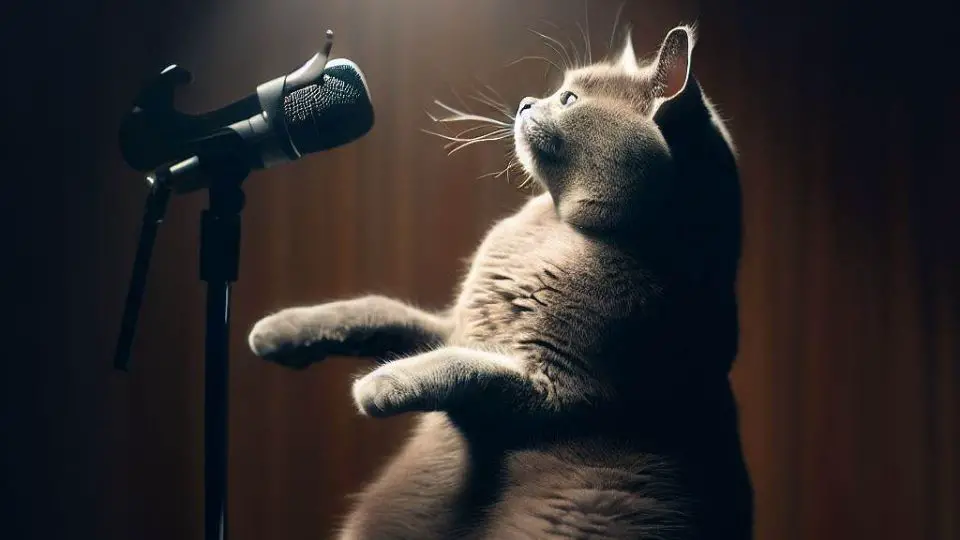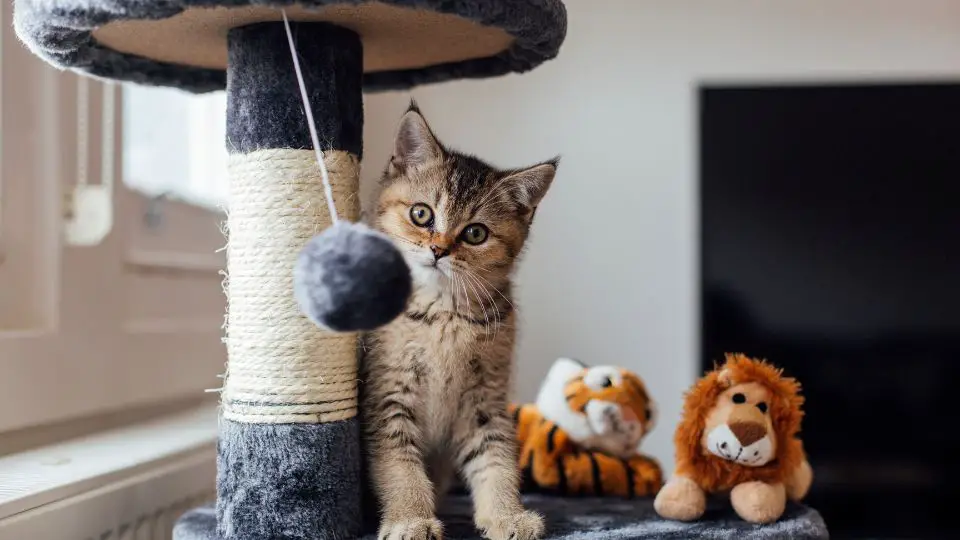As a pet owner, one of the most important decisions you’ll make for your British Shorthair kitten is how often to feed them. Proper feeding is essential for their health and growth, but it can be difficult to know exactly how much and how often to feed.
British Shorthair kittens should be fed 3-4 small meals per day until they are 6 months old, after which they can be fed twice a day.
In this article, we’ll provide you with information on how often to feed a British Shorthair kitten based on their age, weight, and activity level. We’ll also discuss the signs of overfeeding and underfeeding to help you keep your kitten healthy and happy.
Feeding guidelines for British Shorthair
British Shorthair kittens have different nutritional needs at various stages of their growth and development. To ensure that your kitten grows up healthy and strong, you should feed them a balanced diet with the appropriate amounts of protein, fat, and carbohydrates. Here are some age-related feeding guidelines for British Shorthair kittens:
- 4-6 weeks old: At this age, kittens should still be nursing from their mother. If they are orphaned or weaned early, you can feed them a kitten milk replacer formula every 2-3 hours, gradually increasing the amount as they grow.
- 6-12 weeks old: Kittens should be fed 3-4 small meals a day of wet or dry kitten food. The food should be high in protein and fat, with the appropriate amount of carbohydrates. At this age, kittens are still growing rapidly and need a lot of calories to support their development.
- 12-26 weeks old: At this age, kittens should still be fed 3-4 meals a day, but the amount of food can be increased as they grow. They can also be transitioned to adult cat food, which should still be high in protein and fat, but with fewer calories than kitten food.
You should monitor your kitten’s weight and adjust their food intake as needed. Overfeeding can lead to obesity and other health problems, while underfeeding can stunt their growth and development. Additionally, make sure that your kitten always has access to clean water, as dehydration can be dangerous for kittens.
Should I feed my kitten 2 or 3 times a day?
It is generally recommended to feed a kitten 3 times a day until they reach 6 months of age.
Is 2 meals enough for a kitten?
Two meals a day may not be enough for a young kitten, as they have high energy needs and require frequent feedings.
Do kittens eat every 3 hours?
Kittens may need to eat every 3-4 hours, especially when they are very young. As they get older, their feeding frequency can be gradually reduced.
Factors that can affect feeding frequency
Factors such as their activity level, weight, and the type of food being fed can all affect how often they should be fed. Let’s discuss each of these factors in more detail.
Activity level of the kitten
The activity level of a British Shorthair kitten can significantly impact their feeding schedule. Kittens who are very active may require more frequent feeding, while more sedentary kittens may not need to eat as often. Observing your kitten’s behavior can help you adjust their feeding schedule appropriately.
Weight of the kitten
The weight of a British Shorthair kitten is also a crucial factor to consider when determining their feeding schedule. Underweight kittens may require more frequent feeding, while overweight kittens may need to have their portions reduced or their feeding frequency adjusted.
Type of food being fed (wet or dry)
The type of food being fed is another factor that can affect a British Shorthair kitten’s feeding frequency. Wet food is typically more calorie-dense and may require smaller, more frequent feedings, while dry food is less calorie-dense and may require larger, less frequent feedings. Reading the feeding instructions on your kitten’s food and adjusting their feeding schedule accordingly is essential.
Signs of overfeeding or underfeeding
Overfeeding and underfeeding can both have serious consequences for your British Shorthair kitten. Overfeeding can lead to obesity, which can lead to health problems like diabetes, heart disease, and joint problems. Underfeeding can lead to malnourishment and slow growth, which can be detrimental to your kitten’s overall health and development.
Signs of Overfeeding
Overfeeding is a common problem when it comes to kitten care. Here are some signs that your British Shorthair kitten may be getting too much food:
- Weight Gain: If you notice that your kitten is gaining weight too rapidly, it may be a sign that they are being overfed.
- Lethargy: Overfed kittens may be lethargic and lack energy. They may spend more time sleeping than playing.
- Diarrhea: Overfeeding can lead to digestive problems like diarrhea, which can be dangerous for kittens.
Signs of Underfeeding
Underfeeding can also be a problem for British Shorthair kittens. Here are some signs that your kitten may not be getting enough food:
- Slow Growth: If your kitten is growing slowly or is not gaining weight, it may be a sign that they are not getting enough food.
- Restlessness: Underfed kittens may be restless and constantly looking for food.
- Dull Coat: A dull, dry coat can be a sign that your kitten is not getting enough nutrients.
Tips for feeding a British Shorthair kitten
Feeding a British Shorthair kitten can be a rewarding experience, but it’s important to do it right to ensure their health and well-being. Here are some tips for feeding your British Shorthair kitten:
- Use high-quality kitten food: Kitten food is specially formulated to meet the nutritional needs of growing kittens. Look for high-quality kitten food that contains protein, fat, and essential vitamins and minerals. Avoid food that contains fillers, by-products, or artificial preservatives.
- Monitor your kitten’s weight: Keep track of your kitten’s weight and adjust their feeding schedule accordingly. Kittens should gain weight steadily and at a healthy rate. If your kitten is gaining weight too quickly or too slowly, talk to your veterinarian about adjusting their diet.
- Gradually transition to adult food at the appropriate time: When your kitten reaches 12 months of age, you can gradually transition them to adult food. Start by mixing a small amount of adult food into their kitten food and gradually increase the amount over the course of a few weeks. This will help your kitten adjust to the new food without upsetting their stomach.
- Offer fresh water at all times: Make sure your kitten has access to fresh water at all times. Keep their water bowl clean and refill it as needed. You can also offer wet food to help increase their water intake.
- Stick to a consistent feeding schedule: Kittens thrive on routine, so establish a consistent feeding schedule and stick to it. Feed your kitten at the same times each day and avoid free-feeding (leaving food out all the time). This will help prevent overeating and ensure your kitten gets the nutrition they need.
By following these tips, you can help ensure your British Shorthair kitten gets the nutrition they need to grow and thrive. Remember to always consult with your veterinarian if you have any questions or concerns about your kitten’s diet or health.
Conclusion
Feeding your British Shorthair kitten the right amount and frequency of food is crucial for their health and well-being. By understanding their age, weight, and activity level, as well as monitoring their behavior and weight, you can ensure that your kitten is getting the proper nutrition they need to grow into a healthy and happy cat.
Don’t hesitate to consult with your veterinarian if you have any questions or concerns about feeding your British Shorthair kitten.







